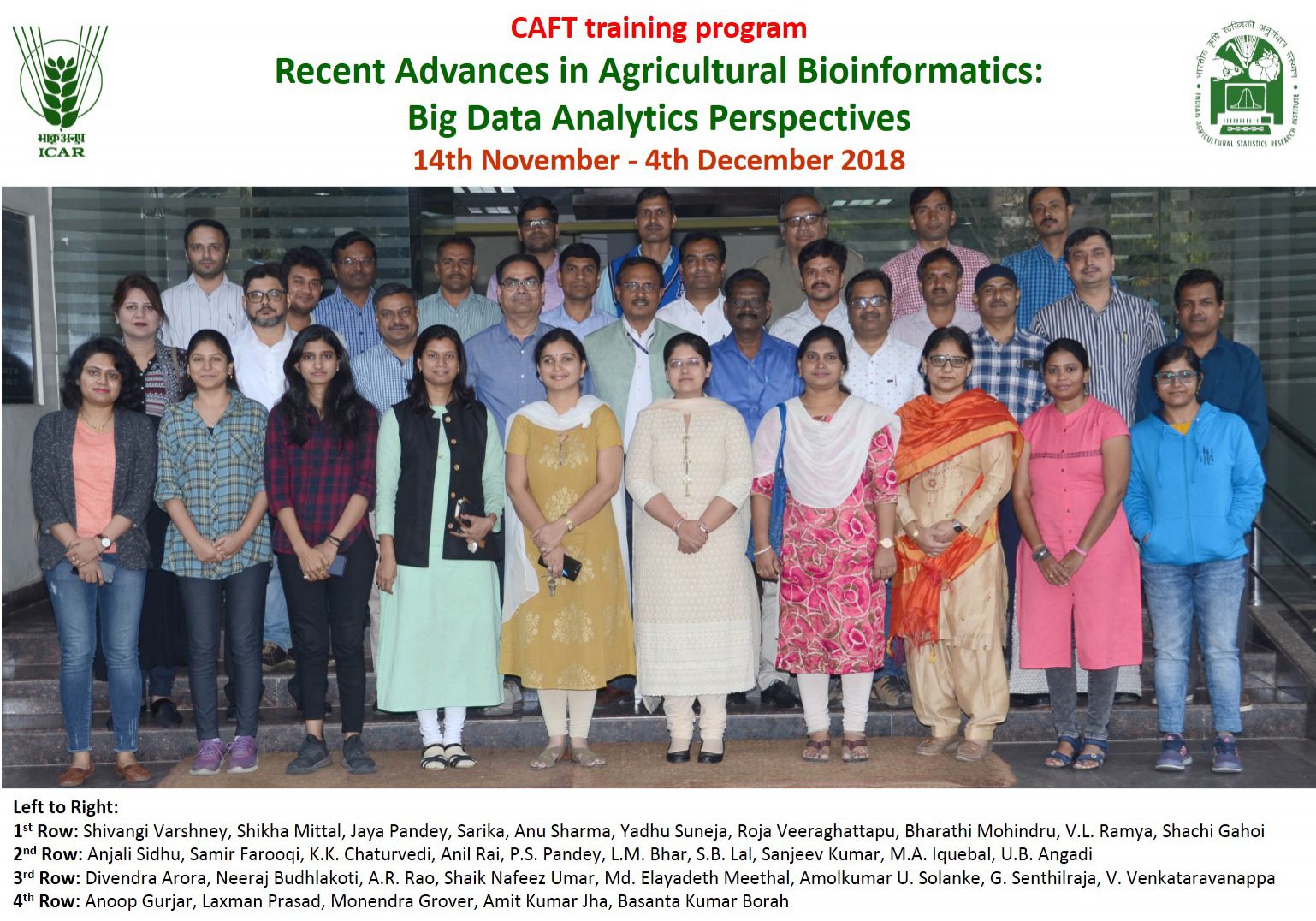ICAR-IASRI New Delhi
Cultivating Agricultural Advancements: Bioinformatics Initiatives on Agri-Genomic Repository and Intelligent Analytical System at ICAR-IASRI New Delhi



One significant accomplishment is the creation of a database for the transcriptome data of Bada Gokhuru, a valuable medicinal herb. Utilizing the LAMP approach, the database was analyzed to identify different transcripts and microsatellites in the plant. The center also employed a drug repurposing approach to identify therapeutics for COVID-19, targeting the main protease (Mpro) enzyme. In-silico screening of 400 bioactive inhibitors revealed ten compounds with higher binding affinity for Mpro than the reference compound, and three compounds (MMV1782211, MMV1782220, and MMV 1578574) were found to actively interact with the catalytic domain of Mpro. The study suggests that MMV1782211 is a potent molecule to target Mpro and can be explored in vitro and in vivo to combat COVID-19.
Additionally, the center explores the functional activity of STAT3 and its downstream kinase effector, PIM1, and their interaction with docetaxel. Molecular dynamics simulation and analysis revealed stable heterodimeric STAT3-PIM1-Docetaxel complexes with strong interaction. Despite docetaxel decreasing cell viability and changing cellular morphology in breast cancer cells, constitutive active STAT3 and PIM1 expression increased after docetaxel treatment, causing EMT in cancer cells. The center also developed a machine learning-based methodology for predicting methylation states in the genome and an R package called “EpiSemble,” an Ensemble-Based Machine Learning Approach for Predicting Methylation States (https://CRAN.R project.org/package=EpiSemble ).
